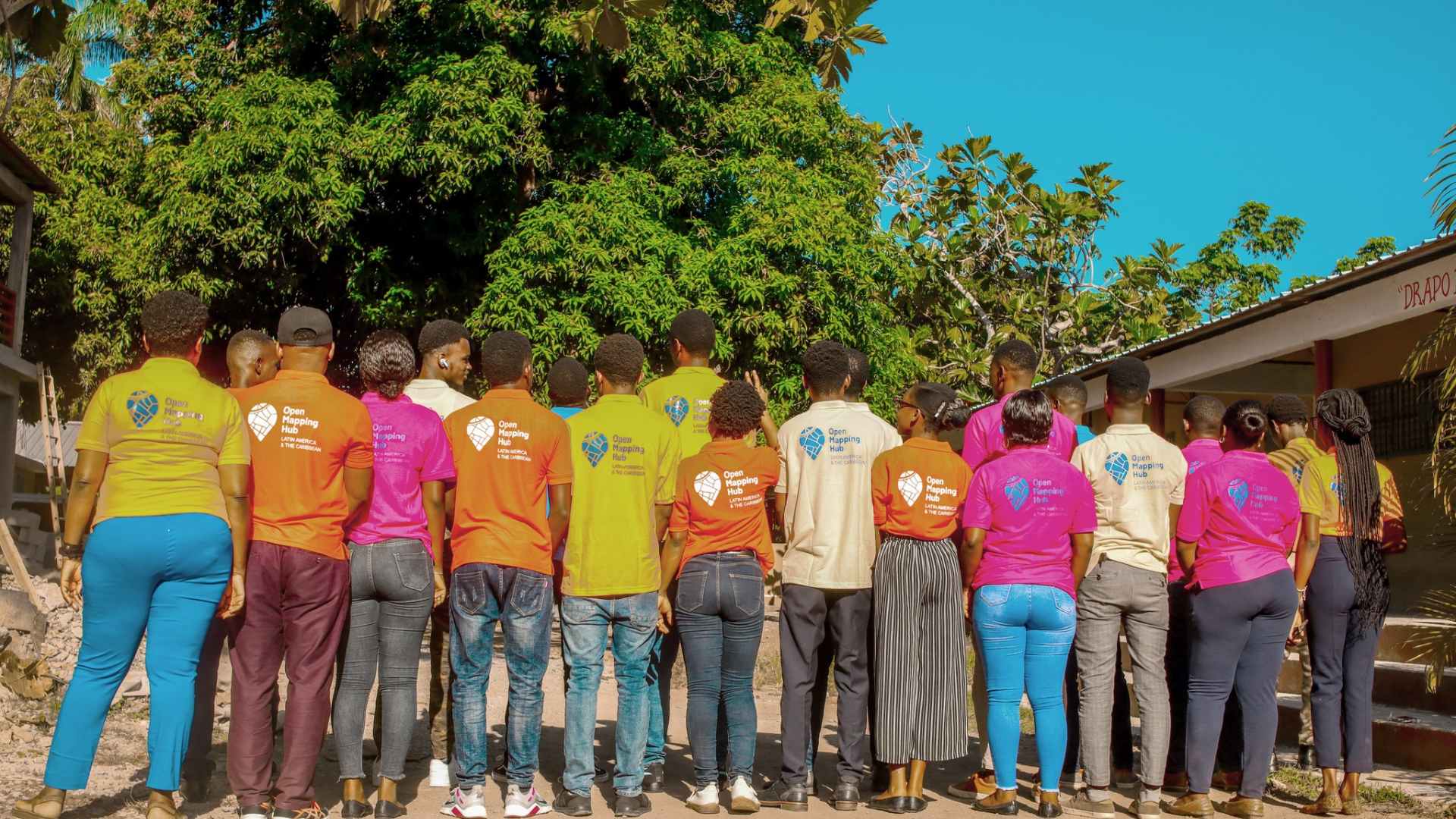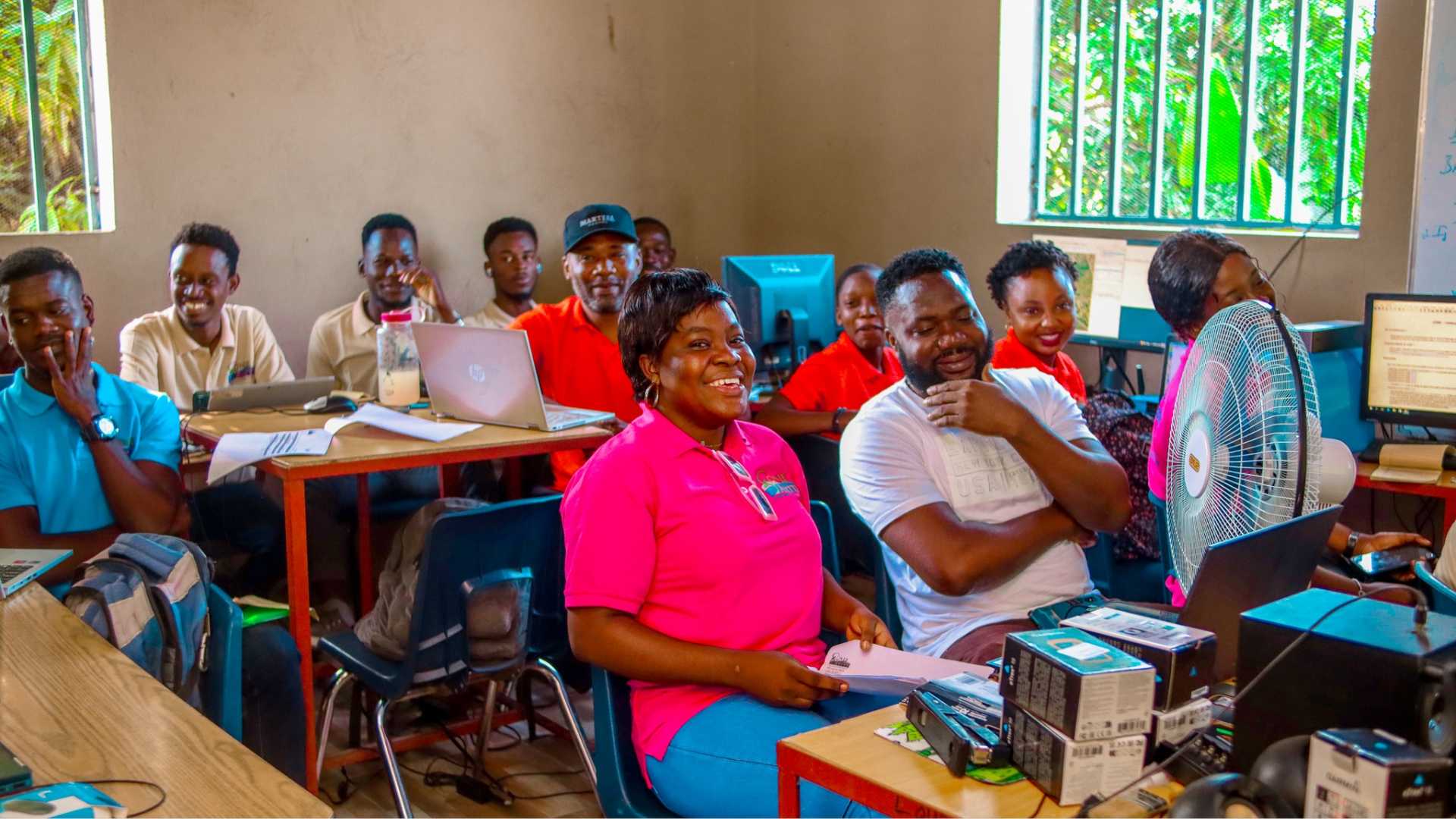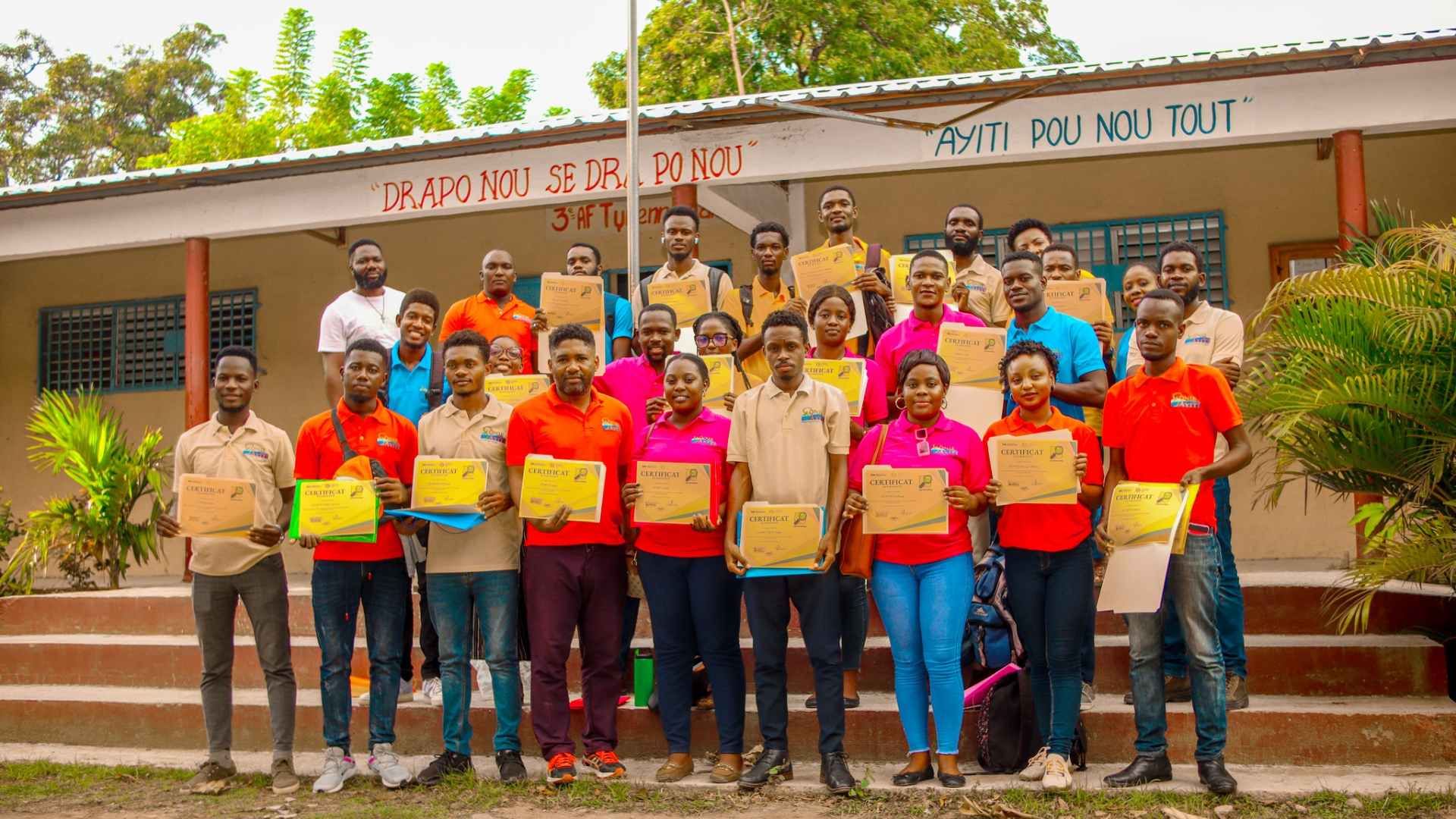News — 27 September, 2024
HOT and Sonje Ayiti Join Forces to Enhance Haitian Communities Through Open Mapping

HOT and Sonje Ayiti Organisation are enhancing Haitian communities by leveraging open geospatial data. This collaboration equips local students with essential mapping skills, enabling them to contribute to disaster management and development efforts. Through this initiative, a new generation of mappers is being cultivated, enhancing community resilience amid Haiti’s socio-political challenges.
As part of its ongoing commitment to Haiti, the Humanitarian OpenStreetMap Team (HOT) has taken a significant step forward by partnering with Sonje Ayiti to enhance the use of open geospatial data for community empowerment. In a country where socio-political challenges have made community engagement increasingly difficult, this collaboration aims to equip local students and community members with essential mapping skills to address humanitarian and development needs.
A Challenging Context for Community Activities
Haiti faces multiple crises, from political instability to natural disasters, making it harder for communities to organize and address local challenges. Despite these obstacles, Sonje Ayiti, an organization present in Haiti since 2005 whose mission is to uplift the Haitian community through education, economic development and health promotion, has proven resilient, with its team displaying exceptional dedication to mobilizing resources for impactful initiatives. The organization’s efforts culminated in the successful recruitment of 23 students from the Henri Christophe Campus of the State University of Haiti, redeveloping its computer laboratory, and acquiring five Garmin etrex 10 GPS receivers to support an OpenStreetMap (OSM) training project.
Between July 2023 and February 2024, HOT funded a report on the state of communities in Haiti since 2010. This report known as: Haiti Report on Humanitarian Actors and Stakeholders with an Interest in Open Geospatial Data in addition to providing a history of the communities present on the ground and the difficulties they face (which difficulties led to the dissolution of two of them), also proposed a number of recommendations including that of developing new partnerships with local institutions in order to relaunch cartography in the North and North East departments of Haiti. One of the main stakeholders on this subject is Sonje Ayiti, an organization present in Haiti since 2005 whose mission is to uplift the Haitian community through education, economic development and health promotion.
Training the Next Generation of Mappers

The week-long OSM training, funded by HOT, focused on students from the Faculty of Earth and Environmental Sciences and Territorial Planning at the Henri Christophe Campus in Limonade. These students, nearing graduation, face the challenge of entering a workforce shaped by Haiti’s tough socio-economic conditions. Sonje Ayiti recruited around twenty eager students, offering them a unique opportunity to gain practical skills in open-source mapping. The training sparked enthusiasm, with students engaging in lively discussions and hands-on activities, equipping them for future roles in disaster management, urban planning, and development.
The training, led by seasoned OSM trainer Wendy Delva, focused on hands-on learning. Participants engaged in a blend of theoretical instruction (30%) and practical exercises (70%), such as group work, simulations, and case studies. This approach allowed students to immediately apply what they learned, fostering an environment of collaboration and enthusiasm. By the end of the training, participants were not only able to map their neighborhoods but also felt empowered to contribute to global mapping initiatives.
Feedback and Reflections from the Participants

The participants’ reflections on the OSM training emphasize the transformative impact it had on their skills and perspectives. Many began with limited knowledge or interest in mapping, but by the end, they felt empowered and eager to continue contributing to the field. Their feedback highlights the importance of practical, engaging instruction and the potential for these new skills to make a meaningful difference locally and globally.
Michaella Jenny Cadet was able to express her level of satisfaction in these terms:
“I am personally satisfied with the training week. I admit that I am not a fan of things related to computers and software. The few GIS and mapping classes I took before seemed boring. I was a little perplexed by the idea of spending an entire week doing cartography training. At the end of this training, I finally realized that it was worth it. I have no regrets about following it. This OpenStreetMap training aroused in me a great interest in cartography. I now feel ready to continue in this field. I think that all of this has a close relationship with the methodology used by Wendy Delva to transmit the content to us without tiring us.”
Handel Charles Fallemsky Adelson, another student (CHCL-UEH), expressed his satisfaction in the closing session:
“I had the chance to participate in a training organized by Sonje Ayiti on OpenStreetMap, during which we were taught how to create and add data on the said platform… Although I was initially a novice in terms of OpenStreetMap mapping, I can today boast of having the necessary capacity to add data to OSM and promote actions for risk and disaster management throughout the world.”
Jude Mania, a finishing student in Geography and Regional Planning (CHCL-UEH), echoed her colleagues’ sentiments:
“At the start of the training, I didn’t know much about OpenStreetMap mapping. Today, thanks to the knowledge acquired, I can now, from my phone or computer, contribute to adding important elements in my neighborhood and across the country, and even help globally.”
Informed Facilitators, for Support Adapted to the Learning Environment

The success of the OSM training was not only a result of the participants’ enthusiasm but also the dedicated support from a team of skilled facilitators. Four professionals—Kedy César (Computer Engineer, SAO), Michelin Etienne (Sociologist, SAO), Réginald Sterlin (Cartographer, COSMHANNE), and Westner Turenne (Cartographer, COSMHANNE)—played a pivotal role in making the sessions engaging and impactful. Their expertise ensured that participants could fully benefit from both the theoretical and practical aspects of the training.
As participant Urlin Gustave shared, “I thank the Sonje Ayiti team in partnership with HOT for this training. I had little knowledge of cartography, but many of my expectations were met thanks to the facilitators and how well the logistics were organized.”
The week-long training was highly successful, as reflected in the participants’ strong grasp of OSM mapping skills, ranging from GPS configuration to error correction.
All 24 participants mastered essential tasks like GPS configuration, scoring points, and taking traces, with only minor variations in performance on some activities. Most participants excelled in practical tasks such as GPS unloading and using OSM questionnaires, with only a few needing additional practice. Editing tasks, including importing GPX files, customizing colors, and creating lines and polygons, were well understood by nearly all. However, advanced tasks like error correction and using validation tools presented more challenges, indicating areas where further training could be helpful.
Overall, the results show strong engagement and learning, with participants demonstrating proficiency in key areas, while a few would benefit from more practice with advanced skills.
The Road Ahead: Expanding OSM and Mapping Key Resources
.jpg)
While the training week was a success, the journey doesn’t end here. There is significant potential to expand this initiative, not just in Haiti but across the Caribbean. Future training could focus on mapping key resources, such as health facilities, schools, and other vital infrastructure, which are crucial for humanitarian and development planning. By integrating these efforts with ongoing disaster preparedness and risk management strategies, the mapping community can play an even more significant role in building resilient communities.
Moreover, establishing long-term support for the students and creating a network of local mappers could amplify the impact of this initial training. Sonje Ayiti has already taken steps in this direction, offering its computer laboratory to anyone interested in continuing their contributions to OSM. But beyond that, there is an opportunity to foster collaborations with local governments, NGOs, and international partners to scale these efforts and ensure that open mapping becomes a cornerstone of Haiti’s development strategy.
The collaboration between HOT and Sonje Ayiti has laid the groundwork for enhancing a new generation of Haitian mappers. As the students continue to develop their skills, there is immense potential to extend this training model throughout the Caribbean and link it with broader humanitarian and development efforts. Whether it’s mapping health sites or infrastructure, these activities will not only improve the accuracy of maps but also strengthen local resilience and capacity. The road ahead is full of possibilities, and with continued support, this partnership can serve as a model for other regions facing similar challenges.

